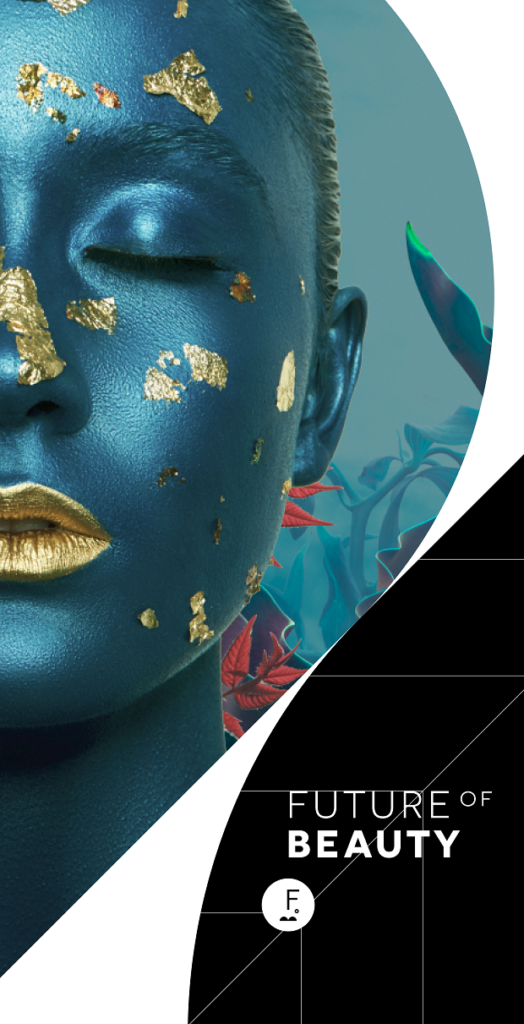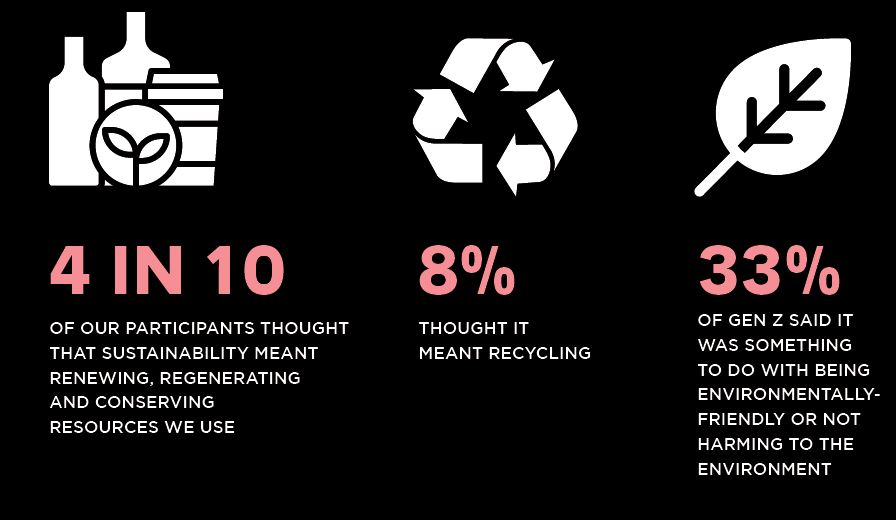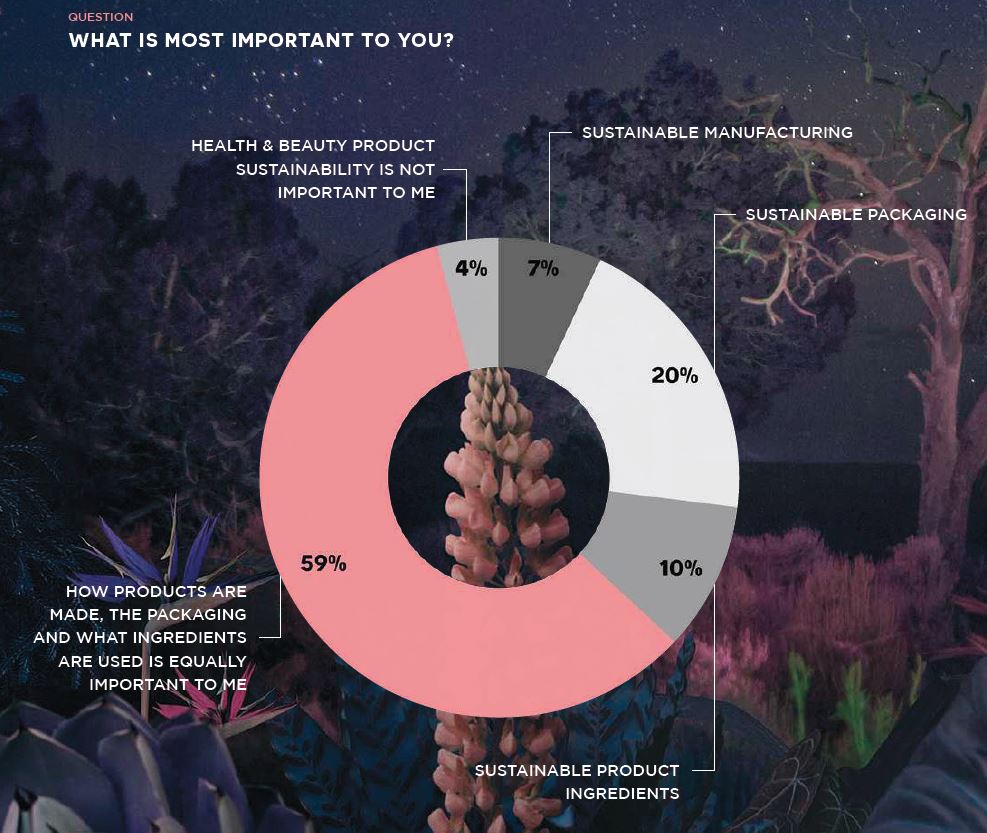New data has revealed that almost three-quarters of UK consumers (71%) don’t think brands and retailers are doing enough to make their beauty and personal care* purchases more sustainable. They also identified plastic waste as the main culprit – around half (46%) see it as the biggest sustainability challenge facing the industry.
 When asked what solution they most want to see, one in five consumers (19%) would like less packaging in their beauty and personal care products, while 17% would like more products with natural ingredients and 15% want in-store refill stations so they can re-use existing containers (rising to 18% among Generation Z). The other areas of interest are sustainable packaging (12%) and in-store recycling bins (11%).
When asked what solution they most want to see, one in five consumers (19%) would like less packaging in their beauty and personal care products, while 17% would like more products with natural ingredients and 15% want in-store refill stations so they can re-use existing containers (rising to 18% among Generation Z). The other areas of interest are sustainable packaging (12%) and in-store recycling bins (11%).
The research also found that nine out of ten shoppers (88%; rising to 93% of Generation Z) look for sustainability credentials in their beauty and personal care purchases and a third (32%) have deliberately chosen a sustainable brand in the past, up to 35% of Generation Z.
However, 70% don’t find brands’ current sustainability claims helpful when it comes to choosing one product over another. Almost all of those surveyed (94%) think brands need to be more transparent about their sustainability credentials.
At the same time, the data noted that brands that people know and trust are the biggest influence on whether or not people buy sustainable beauty products (23%), ahead of family and friends (22%), skincare/beauty professionals (16%) and influencers and bloggers (9%). Household-name broadcasters like Sir David Attenborough and activists like Greta Thunberg are barely an influence at all (3% and 2%, respectively).
The survey of 2,000 UK consumers (93% female) of all age groups was commissioned by The Pull Agency, a creative agency specialising in health and beauty brands. It noted that the UK’s three favourite sustainable brands in that sector are The Body Shop, Lush and Simple – but also that nine out of ten consumers (87%) have never heard of the concept of the ‘circular economy’.
In addition, only 9% have sent a jar back to the manufacturer for refills and only 14% have used a refill service – suggesting consumers aren’t always behaving in the way they claim or brands expect when it comes to their sustainability behaviours.
The findings will be showcased at the virtual Future of Beauty: Sustainability – Do your consumers really care? event that the agency is hosting on 24 February 2021. The expert panel discussion will feature participants from Henkel, Positive Luxury and WWF, looking at the sustainability efforts and strategies of the health and beauty industry.

Claire Rance, head of brand strategy at The Pull Agency, comments: “Sustainability has become a key element of some beauty and personal care brands’ marketing, especially when targeting younger audiences, but this research suggests many of them still have a long way to go. They may also be focusing on behaviours that consumers are reluctant to actually pursue, like returning containers to the manufacturer for refills or recycling.

“It’s an issue where they will have to be more transparent if they don’t want to get left behind – and the fact that so few consumers have even heard of the ‘circular economy’ doesn’t help their cause.”
The study also found that Generation Z is the age group most concerned about animal testing: 21% view it as the biggest challenge facing beauty and personal care, compared to 13% of all consumers. But at the same time, 42% of all shoppers make a point to look for the leaping bunny (cruelty free) kitemark on products.
In addition, it highlighted the importance of recycling: 45% of UK consumers say they look for symbols to show their health and beauty products use recycled materials, and two-thirds (67%) have recycled old packaging from those products themselves.
Other sustainability kitemarks and certifications, however, are less well-known: for example, only 8% of shoppers look for the Soil Association symbol and only 12% look for Ecocert.
There also remains some cynicism in this area among shoppers: half (50%) think their friends and family exaggerate how committed they are to sustainability when it comes buying health and beauty products, rising to 57% among Generation Z.
Nonetheless, even though affordability is the number one factor (57%) affecting which health and beauty and personal care products people choose, 88% of shoppers say they would pay more for products that had genuine sustainability credentials (rising to 90% of Generation Z).
Claire Rance continues: “Consumers are looking for evidence of a sustainable approach, like the leaping bunny, but most of the certifications currently aren’t on shoppers’ radar and it suggests those organisations need to do more work to promote their efforts.
“Beauty and personal care brands have to see sustainability as an opportunity to better connect and engage with their audiences. We’ve all seen how the environment has been positively impacted by the lockdowns and quarantines of 2020, and consumers expect brands to do their utmost to keep things moving in the right direction.”
* Beauty and personal care categories for the purpose of this survey include: Skincare, make up, hair care (shampoo and conditioner), body care & bathing, fragrances/perfume, hair styling, grooming/shaving, at-home hair colourants, sun care & tanning




Comments are closed.